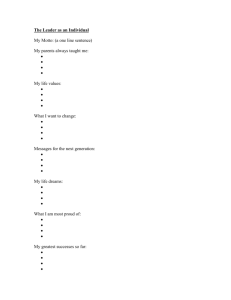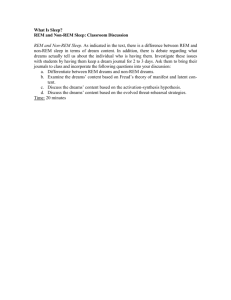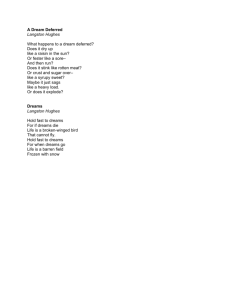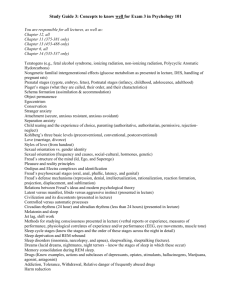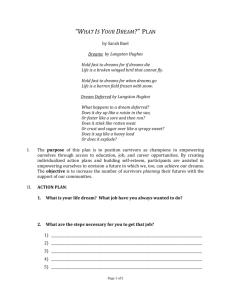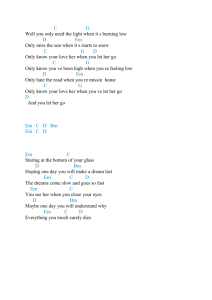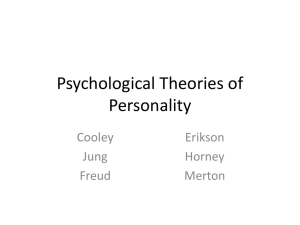DREAMS - Web Design John Cabot University
advertisement
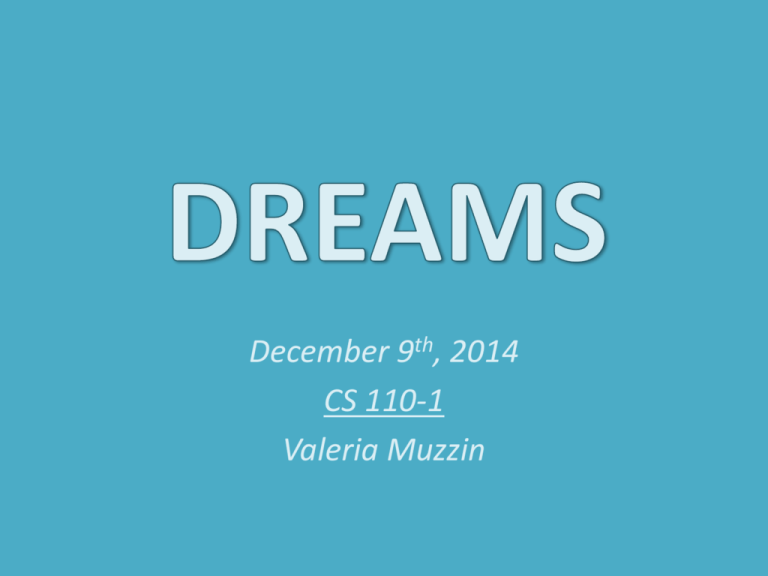
December 9th, 2014 CS 110-1 Valeria Muzzin Dreaming and the Brain How do dreams occur? Freud’s view of dreams Dream Contents Primitive Instinct Rehearsal Theory Dreaming and the Brain When we sleep, we go through five sleep stages. The first stage is a very light sleep from which it is easy to wake up. The second stage moves into a slightly deeper sleep, and stages three and four represent our deepest sleep. Our brain activity throughout these stages is gradually slowing down so that by deep sleep, we experience nothing but delta brain waves -- the slowest brain waves. About 90 minutes after we go to sleep and after the fourth sleep stage, we begin REM sleep…. Click here to know more about it How do dreams occur? Despite years of research, the neurological basis for dreams is still not entirely certain, and several theories (including the activation synthesis theory, the long-term memory excitation theory, the continual-activation theory, and others) have been proposed for how and why dreams occur at all, none of which are entirely satisfactory or universally accepted. The activation-synthesis model, proposed by J. Allan Hobson and Robert McClarley back in the 1970s, suggests that, as circuits in the brain become activated during REM sleep… Click here to know more about it Freud’s view of dreams In the late 19th century, psychotherapist Sigmund Freud developed a theory that the content of dreams is driven by unconscious wish fulfillment. Freud called dreams the "royal road to the unconscious." He theorized that the content of dreams reflects the dreamer's unconscious mind and specifically that dream content is shaped by unconscious wish fulfillment…. Click here to know more about it Dream Contents From the 1940s to 1985, Calvin S. Hall collected more than 50,000 dream reports at Western Reserve University. In 1966 Hall and Van De Castle published The Content Analysis of Dreams, in which they outlined a coding system to study 1,000 dream reports from college students.Results indicated that participants from varying parts of the world demonstrated similarity in their dream content. Hall's complete dream reports became publicly available in the mid-1990s by Hall's protégé William Domhoff, allowing further different analysis. Click here to know more about it Click here to see statistics Primitive Instinct Rehearsal Theory Two researchers have postulated that dreams have a biological function, where the content requires no analysis or interpretation, that content providing an automatic stimulation of the body's physiological functions underpinning the human instinctive behavior. So dreams are part of the human, and animal, survival and development strategy. Professor Antti Revonsuo (2000) has limited his ideas to those of "threat rehearsal," where dreams exercise our primary self-defense instincts, and he has argued this cogently in a number of publications. Click here to know more about it Links Word Document Excell Document
